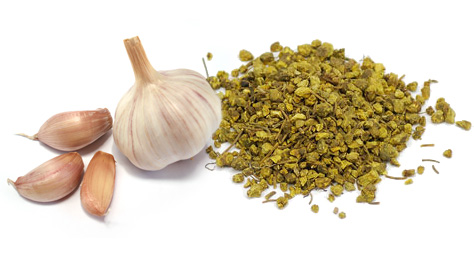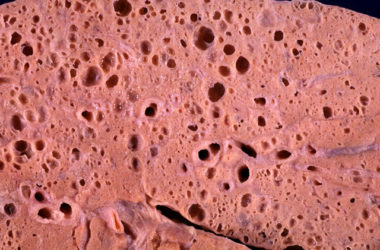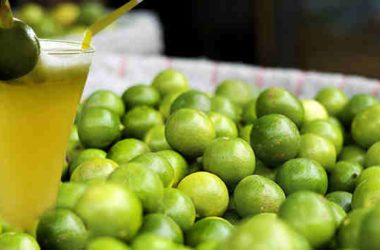Antibiotics were first discovered in the late 1920’s when Sir Alexander Fleming discovered that the fungus Penicillium notatum holds medicinal properties that could kill harmful bacteria. Fleming’s discovery revolutionized medical science by perfecting the treatment of bacterial infections which subsequently, saved millions of lives.
Penicillin came from a natural source. Nonetheless, scientists soon after gained knowledge on how to reproduce its medicinal properties to produce many other types of synthetic drugs. However, these synthetic antibacterial drugs are prone to misuse and abuse, leading to the development of bacterial infections that are resistant to the effects of antibacterial medication.
Fortunately, there are plenty of natural antibiotics which people can use safely. These are not synthetically produced, but are derived from leaves, fruits and barks of certain plants whose usage has been confirmed to eradicate harmful bacteria from our system.
1. Garlic
Garlic has been used since ancient times for the treatment of various diseases, including flu, pneumonia and the black plague. This pungent bulb’s medicinal properties stem from its active ingredient called allicin, which is recognized for its ability to fight against bacteria, common viruses and fungi. Studies also reveal that garlic is rich in antioxidants that help and protect the immune system.
2. Colloidal silver
Silver’s medicinal, germicidal and antibacterial properties have long been recognized by ancient Greeks and Romans, yet it was only in the late 1800’s that the Western world began to rediscover these beneficial properties. Before the onset of antibiotics, silver was commonly used by doctors to ward off infection and to dress wounds.
Studies show that colloidal silver has the ability to kill viruses, bacteria and fungi by disabling the enzyme that these one-celled organisms need for oxygen metabolism. It has been found to be particularly useful for curing bacterial infections on open wounds and sores.
3. Green tea
Green tea’s antibiotic capability comes from EGCG (epigallocatechin gallate), a substance that acts as an antioxidant and has been proven to be effective against certain mouth bacteria. It also has many other benefits, including its ability to improve brain function, reduce excess body fat and anti-cancer protection.
4. Grape seed extract
Grape seed is rich in powerful antioxidants that can help lower blood pressure, reduce the risk of cancer and Alzheimer’s disease, as well as from other chronic illnesses. These antioxidants help boost your immune system and neutralize harmful free radicals that are associated with oxidative stress and chronic inflammation, two contributing factors to the development of various chronic illnesses.
5. Vitamin C
Vitamin C is a potent antioxidant and helps fight off bacterial infections by boosting the immune system. It plays a crucial role in the production of white blood cells, one of the blood cells the body produces that fights off infection. As a result, your immune system is able to fight off bacterial infections more easily.
Nevertheless, this natural antibiotic should be given in high dosages in order to be effective. Some illnesses that can be treated with high dosages of vitamin C include whooping cough, tetanus, diphtheria and polio.
6. Honey
Honey has long been known for its anti-inflammatory and antibacterial properties. A study published in the journal Microbiology showed that honey, particularly manuka honey, stopped the action of bacteria that inhibits the healing of wounds. Honey has long been used over wounds or burns in order to fight off infection, expedite healing and afford minimal scarring. It can also aid in digestion and the absorption of other medications.
7. turmeric
Turmeric contains curcumin, the substance that gives it its color as well as a host of health promoting benefits. It has anti-inflammatory and antiseptic properties and it functions as a powerful antioxidant and a natural antibiotic. It’s used to fight off infections and sepsis in wounds, as well as a treatment for certain skin conditions, such as Acne, eczema and psoriasis.
8. Echinacea
Echinacea is a potent herb used to treat open wounds, blood poisoning, cellulitis, syphilis, diphtheria as well as other bacterial infections. It is known to boost the immune system.













